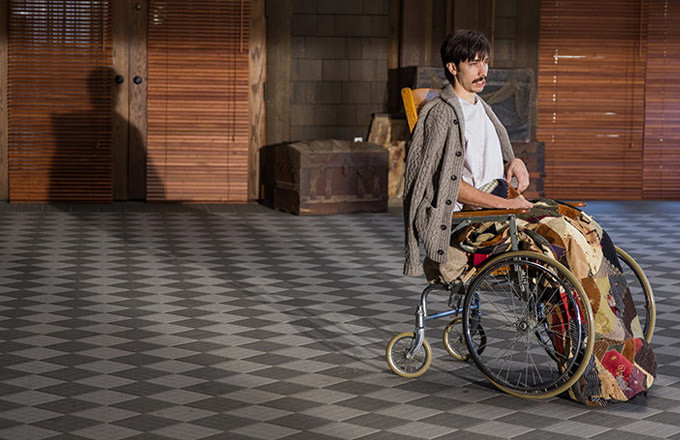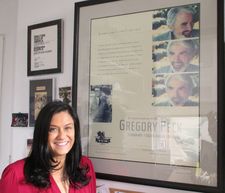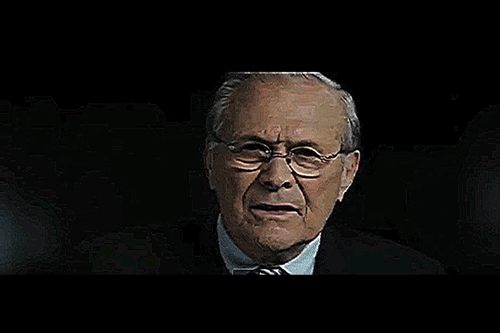
Film Critic Michael Snyder on Kevin Smith’s “Tusk.”

Film Critic Michael Snyder on Kevin Smith’s “Tusk.”

Film Critic Michael Snyder tells us to go see Johnny Depp in Transcendence.

Michael Snyder, our resident film critic, stops by every once in a while to tell us what documentaries we should be catching. Today, he has two.
Listen to the original broadcast
David: Hello Mr. Snyder. First up, The Act of Killing.
Michael: Well, this is a fascinating, disturbing and wildly original documentary by a director named Joshua Oppenheimer, who decided to do something about the mass extermination of people in Indonesia in 1965 that was initiated by a military coup.
People in charge gathered together a bunch of gangsters and set them out to basically cleanse the country of what they said were Communists, and the Communists could be anything from farmers to poor people to genuine dissidents.
Michael: This film goes back to Indonesia and finds these now elderly killers and asks them to explain the how and the why of the murders that they committed and also to reenact them for the camera.
Michael: These guys, apparently, a number of them really love the American movies, and they’re given an opportunity to play act these incidents of killing and torture, and basically try to justify what they did when they did it and express very little remorse. Some of these guys killed hundreds of people, literally hundreds of people, each individually. One guy in particular, Anwar Congo, has bad dreams, and a lot of it must be guilt.
David: Does he know that he’s guilty?
Michael: Oh, absolutely. But it doesn’t change the fact that they did it and they tried to justify what they did. Even today, people are frightened of them as we see in the course of their filming and interacting with actual citizens of the northern Sumatra area.
It’s pretty astonishing stuff.
David: After Suharto fell in 1998 did Indonesia have any truth in reconciliation? Did any of these guys go to prison for these atrocities?
Michael: No. No, absolutely not. They walk the streets, they’re still feared and/or admired or cowed before. It’s a phenomenal film, and it’s surreal in places. There’s one particular kind of production number involving the music from the film Born Free with dancing girls and what looks like a gigantic fish. I can’t even – it is like nothing I’ve seen before. It’s disturbing, it’s phenomenal. It’s as if somehow, the Nazis were given a pass and were still around today and were kind of basically strutting down their street in their hometown and nobody gave a damn.
David: Maybe it’s time for another documentary where Henry Kissinger reenacts all the murders he’s committed in Indonesia’s East Timor and Cambodia.
Michael: There’s enough horror on the screen with these old Indonesian gangsters. You’ll be stunned, honestly.
David: And they’re proud of it?
Michael: Oh, yeah, absolutely. And one guy is just happy that he got away with it, another guy is somewhat tormented, some say you just can’t allow yourself to embrace any guilt in the issue. And there’s one guy, he was the stepson of a Communist whose stepfather just disappeared. They took him away. And what’s really remarkable about this is the palpable fear he still has in the presence of these old gangsters.
David: And ‘gangsters’ is the word for them?
Michael: Yeah. They actually wear it proudly.
David: And they live well, right?
Michael: I don’t know how standards of living are over there, but yes, fairly comfortably.
There’s also a very perverse moment when Anwar is with what appears to be grandchildren and he’s being gentle about a wounded duck, and meanwhile, completely callous about the people that he killed. One guy talks about walking through the city and encountering Chinese Communists, or people he perceived of as Chinese Communists, and just stabbing them one after another, just going on a tear.
David: President Obama lived in Indonesia for a while, didn’t he?
Michael: He may not have known these guys.
David: Maybe he’s responsible for this. OK, Running From Crazy.
Michael: Well, it’s basically a documentary about Mariel Hemingway and her fear of the emotional, psychological and genetic legacy that has led to at least two suicides in her family and a mentally disturbed elder sister. Mariel’s sister, Margaux, who was an actress and a model, took her own life and was a lovely, vibrant woman.
Mariel seems to have her head screwed on straight and she’s trying to keep her life together, and the camera follows her through her life and she talks about the past. There’s video footage shot by Margaux, and there’s a lot of discussion of the entire family, including Mariel and Margaux’s grandfather, the great author Ernest Hemingway, who had plenty of problems of his own.
Michael: The director is Barbara Kopple, who did Harlan County, USA, American Dream, and a lot of other pretty renowned, award-winning documentaries. It appears to have been partially financed I think by OWN, or has been shown on OWN, Oprah’s network. But it’s a beautiful depiction of someone basically plowing forward with her life, making sure she’s going to do the very best she can to keep it together. She’s wonderful in that.
David: And she’s turned to yoga and eating properly, and she has either a boyfriend or a husband?
Michael: She seems like a good person. She seems like someone who has her head screwed on. But it’s interesting to hear her reflect on her family and see the footage from the past, and realize that she’s grappled with tragedy and a fear of her own mind crumbling for much of her adult life. And it’s powerful in its own way. Reflecting on the past can actually prepare you for the future or completely turn your life around. This movie is about family bravery in the face of what could be destiny, genetic destiny, if you will.
David: Great. Michael Snyder, thank you for joining us.
Listen to the original broadcast
What do you think? Join the conversation below?

Our resident film critic Michael Snyder talks about Errol Morris’ new doc on Donald Rumsfeld, and why everybody should see it.


How Wall Street buys professors to teach, write and testify on Wall Street’s behalf with two time Pulitzer Prize winning investigative journalist David Kocieniewsk from The New York Times. David Kocieniewski wrote two investigative articles this year about Goldman Sachs and Apple that we discuss all the time on this show. His latest investigative piece will make you question everything you’re told by economists and professors. Then Film Critic Michael Snyder lists his favorite movies for 2013. Also Will Ryan and The Cactus County Cowboys, Jimmy Lee Wirt, Janie Haddad Tompkins, Hal Lublin and Jeremy S. Kramer. Portions of our show are written by Hal Lublin, David Weiss and David Feldman. Please subscribe to our show for free as a podcast on iTunes and Stitcher.
David Kocieniewski is a business reporter who has been covering the nation’s tax system for The New York Times since 2010. Previously, Mr. Kocieniewski had been a reporter on the paper’s Metro desk since 1995 where he focused on law enforcement, corruption and its offshoot and the New Jersey government.
In 2013, he was part of the team awarded the Pulitzer Prize for Explanatory Reporting
“for its penetrating look into business practices by Apple and other technology companies that illustrates the darker side of a changing global economy for workers and consumers.”
In 2011, Mr. Kocieniewski examined the efforts by businesses to lower their taxes and the debate over how to improve the tax system in a series titled “But Nobody Pays That.’‘
In April 2012, the series was awarded a Pulitzer Prize for Explanatory Reporting. The Pulitzer jury said his work
“penetrated a legal thicket to explain how the nation’s wealthiest citizens and corporations often exploited loopholes and avoided taxes.”
Mr. Kocieniewski joined The Times in 1995. Previously, he worked at The Detroit News from 1986 to 1990, and New York Newsday from 1990 to 1995. He has covered criminal justice and politics for most of his career.
While at New York Newsday, he wrote a series of stories about corruption in the New York Police Department that led to the Mollen Commission hearings and won a handful of awards from various organizations, including the New York State Bar Association and the National Association of Black Journalists.
Mr. Kocieniewski is the co-author of “Two Seconds Under the World,” a book about the 1993 bombing of the World Trade Center and the F.B.I.’s failure to takes steps that might have prevented it. He also wrote “The Brass Wall,” an exposé about corruption in the police department’s Internal Affairs Bureau that nearly cost a hero undercover detective his life; the book was cited as one of the top 10 nonfiction books of 2003.
Mr. Kocieniewski was born in Buffalo, N.Y. He graduated from the State University of New York at Binghamton in 1985, and Columbia University Graduate School of Journalism in 1986.

Film Critic Michael Snyder stops by to rave about “Inequality For All” the new documentary about the enormous gap between wealth and poverty. Plus he tells us to rush out and see Muscle Shoals.